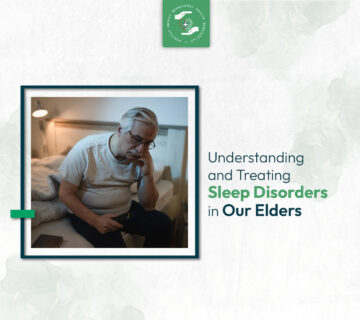Tourette syndrome is a complex, often misunderstood condition that affects many across the globe. In this blog, we’ll dive deep into what Tourette syndrome is, its symptoms, causes, and the latest treatments available. With a friendly and conversational tone, we aim to demystify this aspect of behavioral health and provide insights that are both informative and engaging.
What is Tourette Syndrome?
Tourette Syndrome (TS) is far more than the media portrayal of uncontrollable swearing. It’s a neurological disorder characterized by repetitive, stereotyped, involuntary movements and vocalizations called tics. The onset of TS typically occurs in childhood, and while the exact cause remains a mystery, it involves a combination of genetic and environmental factors. Understanding TS is crucial in debunking myths and recognizing the true challenges faced by those who live with it.
Common Symptoms of Tourette Syndrome
The heart of Tourette’s lies in its tics, which can be either simple or complex. Simple tics involve sudden, brief, repetitive movements like blinking or throat clearing. Complex tics are more distinct patterns of movement involving multiple muscle groups, such as hopping or twirling, and can include uttering words or phrases. It’s essential to note that tics tend to evolve in nature, varying in severity and frequency, often peaking during early teens and improving into late adolescence and adulthood.
Understanding the Causes
The exact origin of Tourette Syndrome is still somewhat of an enigma. However, it’s widely acknowledged that a mix of genetic and environmental components play pivotal roles. Research indicates that TS is inherited, with a higher prevalence seen if one or both parents are carriers of the gene associated with the disorder. Additionally, certain environmental factors, like prenatal complications, have been identified as potential contributors, highlighting the complexity of its onset.
Diagnosing Tourette Syndrome
Diagnosing TS is primarily observation-based, relying on the history of the individual’s tics. According to the Diagnostic and Statistical Manual of Mental Disorders (DSM-5), the presence of multiple motor and one or more vocal tics for at least a year is necessary for a diagnosis. The process excludes other medical conditions that could mimic tics, underscoring the importance of a comprehensive evaluation to ensure accurate diagnosis and treatment planning.
Treatment Options to Consider
Treatment for Tourette Syndrome focuses on managing symptoms to improve quality of life, as there is currently no cure. Behavioral interventions, such as Comprehensive Behavioral Intervention for Tics (CBIT), have shown significant promise. Medications can also play a role, particularly when tics are severe or cause pain, discomfort, or interference with daily life. It’s a tailored approach, adjusting over time to meet the unique needs of each person living with TS.
Living with Tourette Syndrome: Tips and Strategies
Adapting to life with Tourette’s involves a blend of strategies to manage tics and embrace a supportive community. Education about the condition can empower those affected and their families, fostering understanding and resilience. Establishing a strong support network, seeking therapeutic help, and staying informed about new treatments and coping mechanisms are also key. Remember, every journey with TS is unique, and finding what works best for you or your loved one is paramount.
Mindfulness and stress management techniques have also been beneficial for many living with Tourette Syndrome. Stress can often exacerbate tics, so learning how to navigate stressors healthily is crucial. Techniques such as meditation, deep breathing exercises, and yoga have been cited as effective ways to reduce tic severity and improve overall wellbeing.
Support and Resources for Behavioral Health
Navigating Tourette Syndrome doesn’t have to be a solitary journey. Numerous resources are available to provide support, education, and advocacy. National and local Tourette Syndrome associations offer a treasure trove of information, support groups, and events that can connect individuals and families with others who understand what they’re going through. Remember, reaching out for help is a sign of strength, and tapping into these resources can be a vital step in managing TS.






No comment